On both Monday and Tuesday of the 2025 SMART Leadership Conference, SMART officers learned, developed skills and built solidarity with fellow officers in a variety of targeted breakout sessions. In sessions like “Union Leadership Administration: Best Practices for SMART Local Union Leaders” and “From Antagonism to Optimism: Navigating and Resolving Member Conflicts,” officers explored best practices of local representation and union administration from both a high level and in greater specifics.

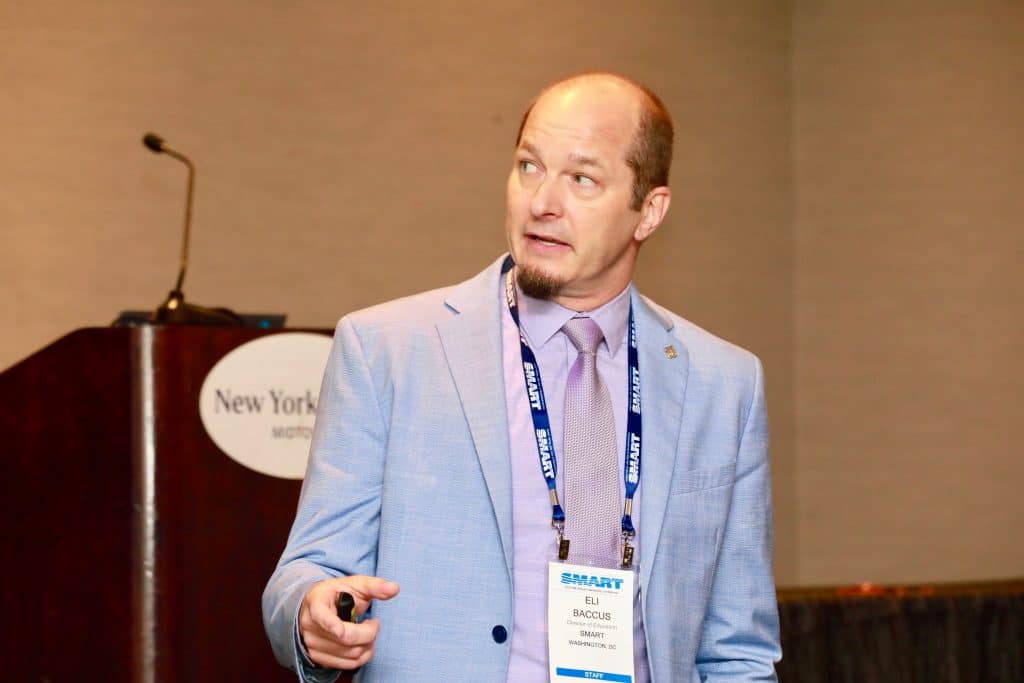
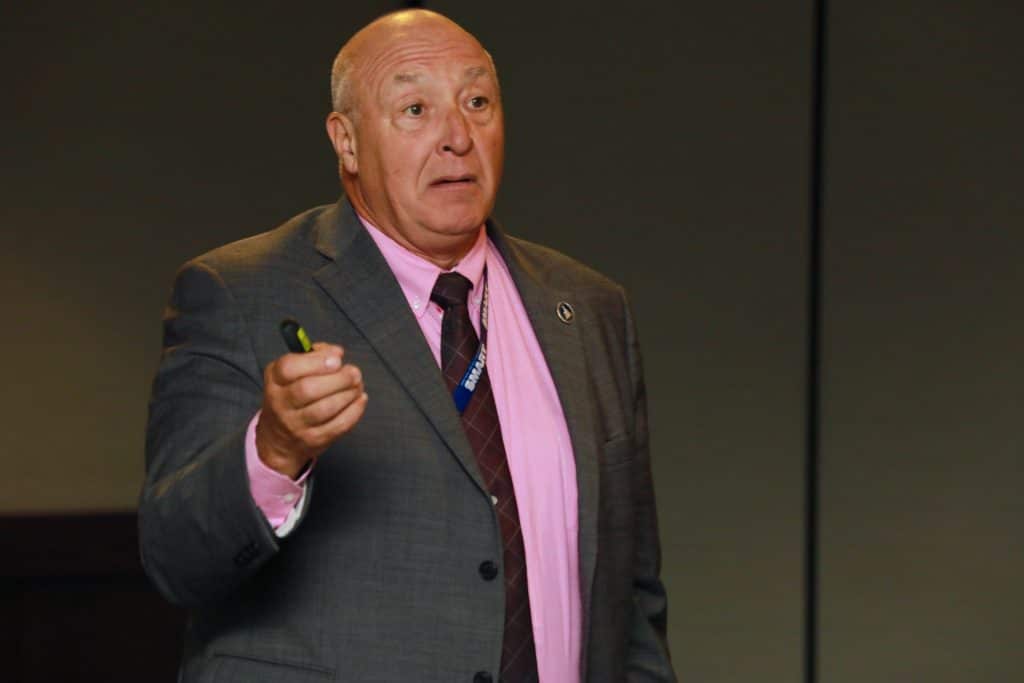
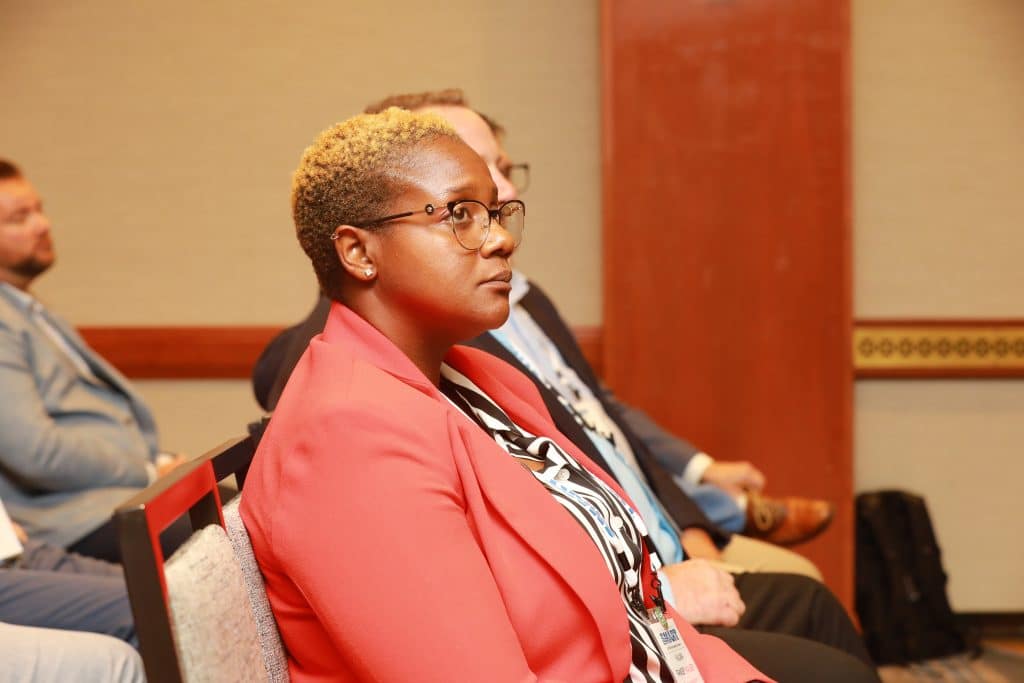
In “Campaign Planning Fundamentals” and “Right to Work: Understanding the Virus and Inoculating Against It,” SMART staff focused on both external and internal organizing — the key to strengthening our union.
SMART staff educated attendees on how to take advantage of one of our union’s latest mental health benefits in “Unlocking Comprehensive Mental Health Support: How Union EAP is Revolutionizing Our Workplaces,” while the IA Communications Department presented on resources available to help locals grow their reach in “Leveraging SMART’s Digital and Video Resources for Effective Communication.” Similarly, a panel of local officers and National Energy Management Institute staff presented on how locals can secure more work via coalition and partnership building in “Building Bridges: Partnering with Inspectors and Code Officials for Local Success.”
Finally, sheet metal officers had the chance to overview “Changes to the 55/30 Pension within the National Pension Fund” with Sheet Metal Workers’ National Pension Fund staff and “Union Trials and Grievances” with SMART House Counsel Luke Rebecchi.
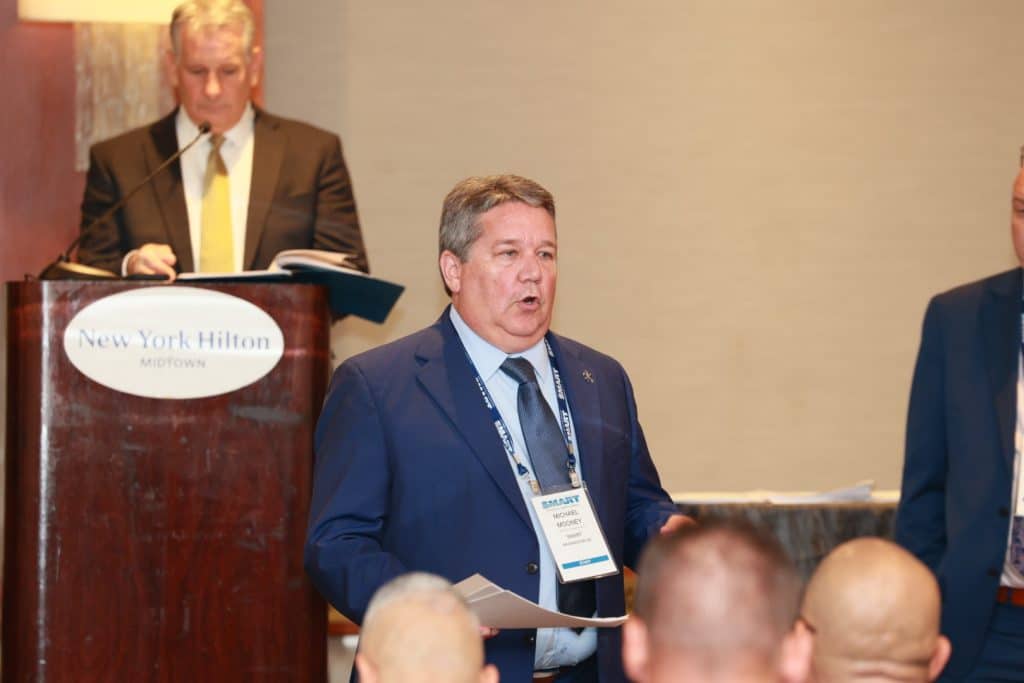
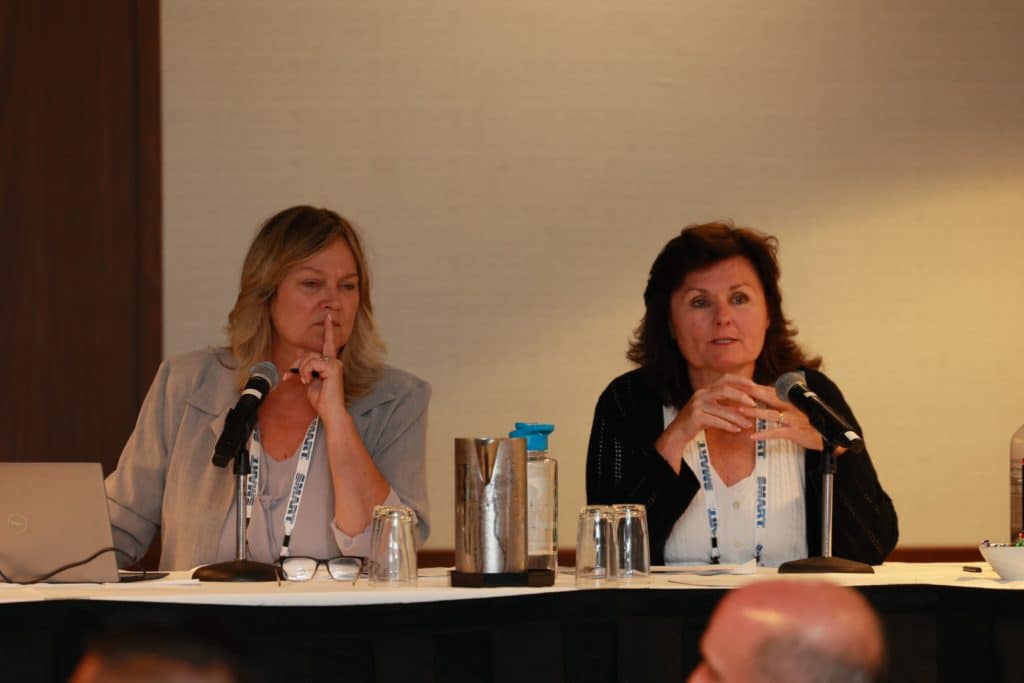
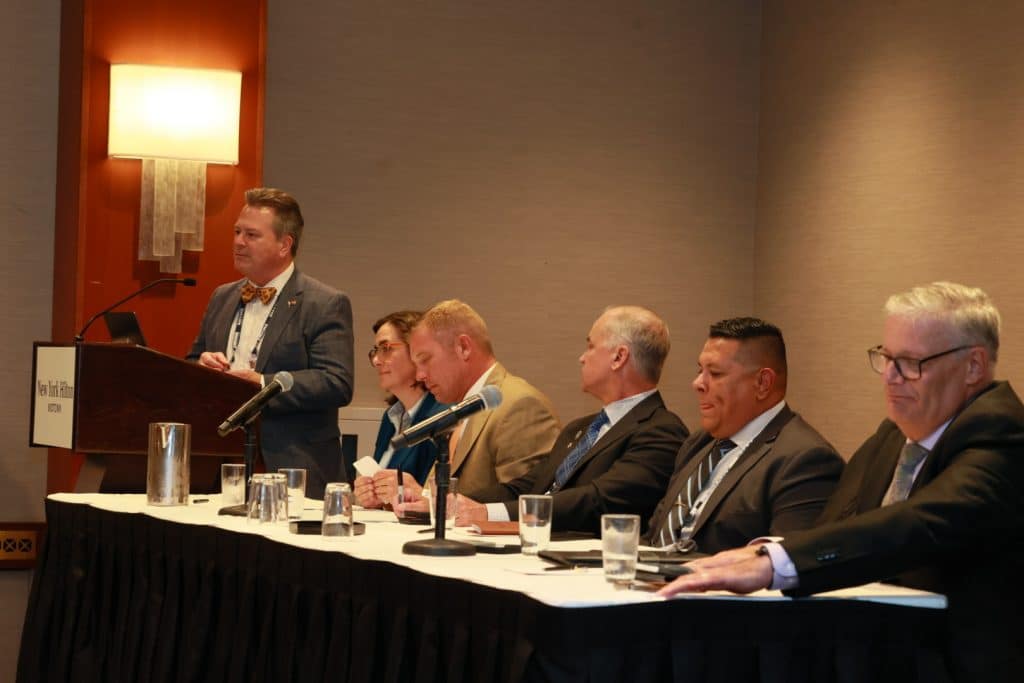
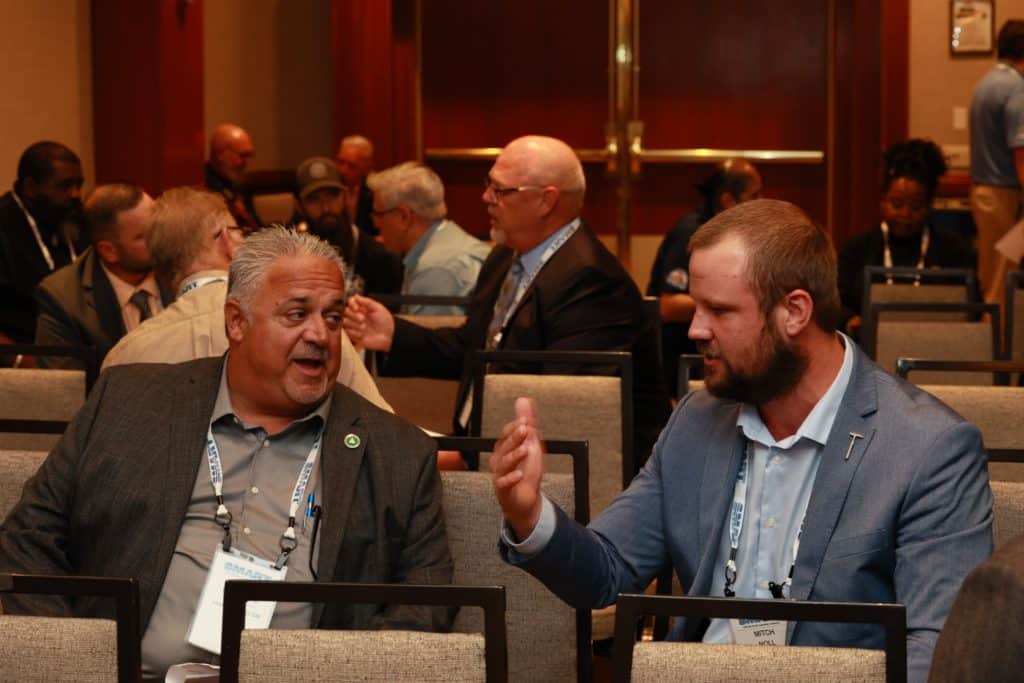
Like their sheet metal counterparts, SMART-TD attendees used the breakout sessions on offer to strengthen their ability to advocate on behalf of their members, whether on the rails, on buses, in the yardmasters’ tower or beyond.
The Rules and Dispute Arbitration session provided an overview of said topics under the Railway Labor Act, helping attendees determine when arbitration is appropriate, understand the processes for arbitration under the National Railroad Adjustment Board, and more. The course helped officers evaluate claims, follow proper procedures and navigate arbitration options effectively.
In Bargaining with Power, a bus-targeted session, attendees participated in a strategic workshop designed to help locals shift from a defensive stance to a position of strength. The course focused on building leverage, setting the tone and taking control of the narrative at the bargaining table.
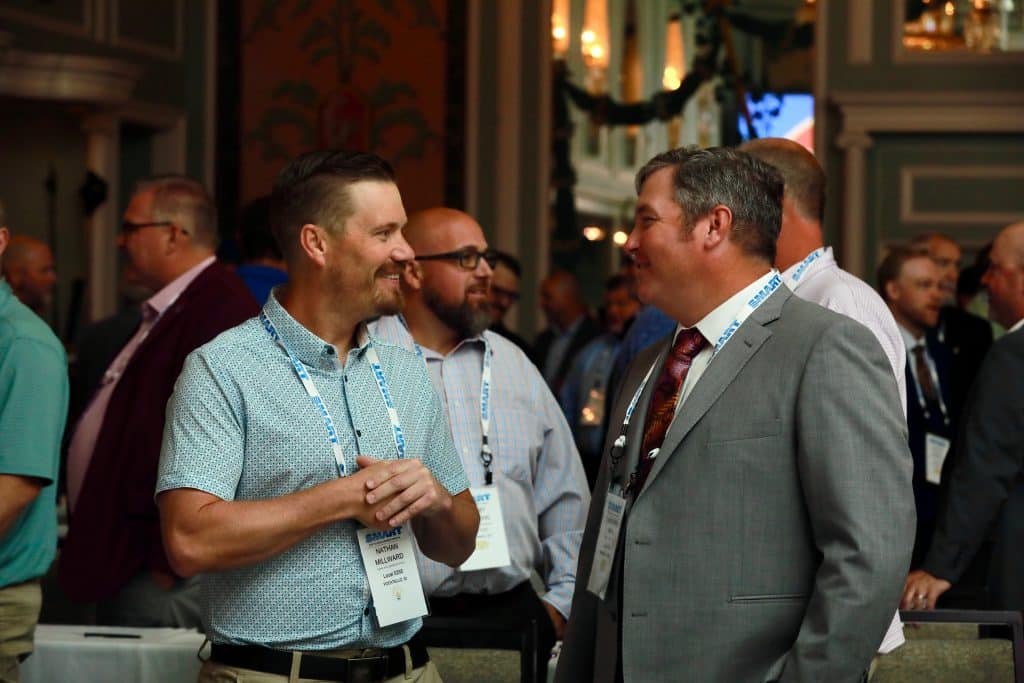
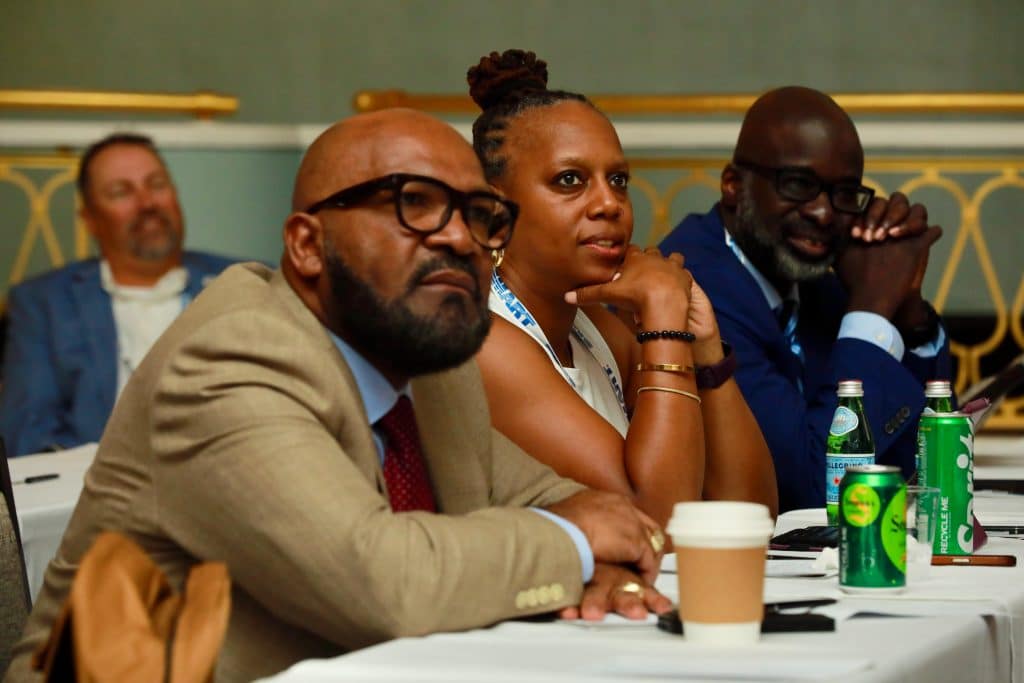
Officers that attended sessions like Safety Reporting and Documentation and a two-part Grievance Skills Workshop for bus attendees dove deep on developing specific practices to help them protect and advocate on behalf of members, covering key topics like identifying unfair labor practice issues and how to use enforcement mechanisms to protect members and hold employers accountable.
Other TD sessions included Safety-CISP-CRISI, a public speaking course and more.
Canadian breakouts strengthen SMART across the provinces
Canadian officers prepared to secure our union’s future north of the border in the “SMART Capital Canada: Putting Our Resources to Work” and “SMART Canadian Growth, Incentives, and Union Trials” sessions. The first session introduced the Canadian Capital Program, which is designed to provide financial support to unionized contractors when needed, helping them secure bids and ensure union work is awarded to SMART members. This session emphasized the importance of raising awareness about the program’s availability in Canada, encouraging union leaders to communicate with contractors to spread the word. Although the program is still new in Canada, it has already seen success, showcasing its potential to support union jobs and build on our relationship with signatory contractors. This program is a useful tool in the fight for what matters most — our members — by directly supporting SMART’s mission to secure and maintain employment.
The incentive program discussed aims to address the growing need for skilled tradespeople across Canada. It offers both an organizing incentive, travel incentive and signing bonus, aimed at strengthening local unions by bringing in experienced recruits. Members who successfully refer new members with prior experience may be eligible for bonuses, helping to expand our union’s ranks with qualified workers. This program is a strategic move to staff up our locals while maintaining the highest standards to build a strong, skilled and unionized workforce across Canada.
Canada’s final two sessions emphasized the continued importance of organizing, especially when it comes to megaprojects. These projects can employ hundreds of SMART members, and it’s essential that they are built by union workers. Organizing ensures that we not only secure work for our members but also raise the standards across the sheet metal and roofing industries: protecting wages, safety and dignity at work.
And finally, SMART Canada focused on equipping members with the essential rules and regulations needed to handle union grievances and trials within a local. This session emphasized the importance of understanding SMART’s constitutional guidelines, local bylaws and due process to ensure all grievance and trial proceedings are conducted fairly, in a timely manner and according to all protocols.
Related News
- Senate Hearing Highlights the Good, the Bad, and The Ugly of RRB
- On-Duty Assault Leaves Amtrak Conductor Facing Financial Hardship
- Transit Equity Day: Remembering Rosa Parks
- Railroads Have Short Memories: East Palestine 3 Years Later
- Canadian Affairs Report: A stronger future
- Local 537 organizes major nonunion competitor
- Local 47 members’ quick action and emergency response save colleague’s life
- SMART Local 1 signs new contractor to complete specialized workforce request
- RIDER Safety ACT Aims to Curb Transit Assaults Nationwide
- Rail Safety Is Too Important For Corporate Discretion